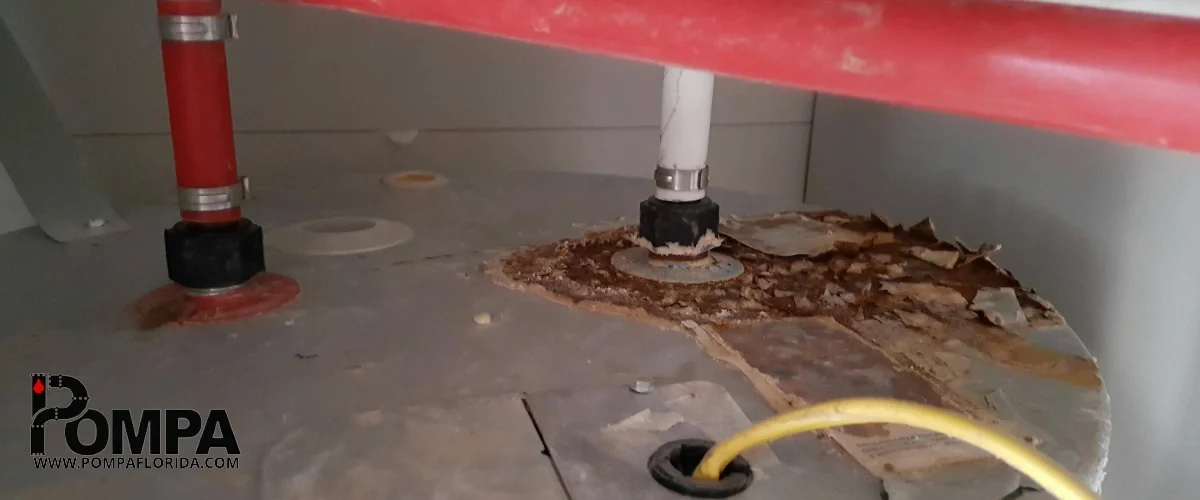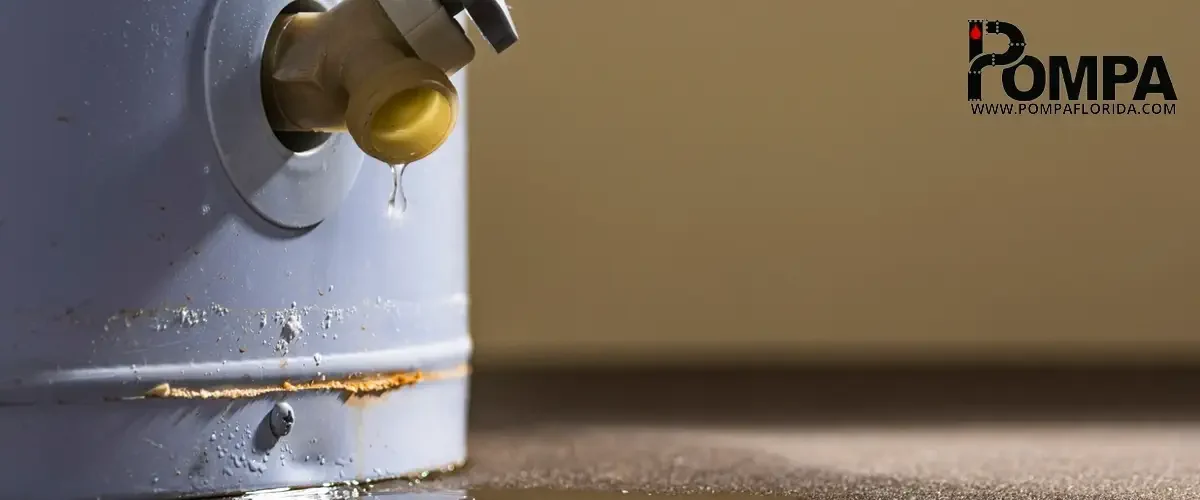Water Heater Safety Tips
November 23, 2023
A reliable water heater is an unsung hero in every home, providing hot water for bathing, cooking, and cleaning. While it’s easy to take this essential appliance for granted, neglecting its maintenance can lead to safety hazards. Ensuring the safety of your water heater not only protects your home but also safeguards your family from potential dangers. In this article, we will explore essential water heater safety tips that every homeowner should be aware of.

Regular Inspections for Leaks and Corrosion
One of the primary concerns with water heaters is the risk of leaks and corrosion. Over time, sediment build-up can corrode the tank, leading to water leakage. Schedule regular inspections to check for any signs of moisture around the tank, especially at the base. A leaking water heater can cause water damage to your home’s structure and contribute to mold growth, posing a threat to your family’s health.
To conduct a thorough inspection, start by visually examining the area around the tank. Look for damp spots, puddles, or discoloration on the floor. Additionally, inspect the tank’s exterior for any signs of rust or corrosion. If you notice any issues, it’s crucial to address them promptly. Small leaks can be indicative of larger problems, and ignoring them can lead to catastrophic failures. In the event of a leak, turn off the power supply and water source to the heater immediately and consult with a professional plumber to assess and rectify the issue.
Adjusting the Temperature for Safety and Efficiency
While having access to hot water is essential, maintaining the right temperature is equally crucial for safety and efficiency. The recommended temperature setting for most water heaters is around 120 degrees Fahrenheit (48.9 degrees Celsius). This temperature is hot enough for your needs but low enough to prevent scalding accidents, especially in households with young children or elderly individuals.
Setting your water heater at an excessively high temperature not only poses a scalding risk but also contributes to increased energy consumption and utility bills. Moreover, extremely high temperatures can accelerate the sedimentation process within the tank, reducing its efficiency over time. Regularly check and adjust the thermostat on your water heater to ensure it is set within the safe and efficient temperature range. This simple step not only enhances safety but also contributes to the longevity of your water heater.

Flushing the Tank for Sediment Removal
Over time, sediment build-up in your water heater tank can compromise its efficiency and pose serious safety risks. Sediment is primarily composed of minerals and debris present in the water supply, which settles at the bottom of the tank. This sedimentation can lead to overheating, reduced heating efficiency, and even tank corrosion. Regular flushing of the water heater tank is a crucial maintenance task to prevent these issues.
To flush your water heater, turn off the power supply (electricity or gas) and the water inlet valve. Connect a hose to the tank’s drain valve and place the other end in a suitable drainage location, such as a floor drain or bucket. Open the drain valve and allow the tank to empty completely, flushing out the accumulated sediment. Repeat this process at least once a year to keep your water heater operating efficiently and safely. However, if you’re unsure or uncomfortable performing this task, it’s advisable to seek professional help to ensure it is done correctly.
Insulating Your Water Heater for Energy Efficiency
Beyond regular maintenance, homeowners can enhance the efficiency of their water heaters by insulating the tank. Insulation reduces heat loss and helps the water heater maintain the desired temperature more effectively. You can purchase specialized water heater blankets or jackets from hardware stores to wrap around the tank. This simple and cost-effective solution minimizes standby heat loss, especially in colder climates, leading to energy savings and prolonged appliance life.
Inspect your water heater’s insulation regularly for signs of wear or damage. If you notice any issues, promptly replace or repair the insulation to maintain optimal energy efficiency. This additional layer of protection not only contributes to the safety of your appliance but also reduces your environmental impact by conserving energy.
Checking and Testing the Pressure Relief Valve
The pressure relief valve is a critical component of your water heater, designed to release excess pressure and prevent the tank from bursting. Regularly check and test this valve to ensure it functions correctly. To test the pressure relief valve, follow these steps:
- Turn off the power supply to the water heater.
- Locate the pressure relief valve on the side or top of the tank.
- Place a bucket under the valve to catch any water that may be released.
- Lift the valve’s tab to allow water to flow into the bucket.
- Release the tab and ensure it snaps back into place, stopping the water flow.
If the valve fails to operate correctly during testing, or if you notice any signs of leakage, it’s crucial to replace it immediately. A malfunctioning pressure relief valve can lead to a dangerous increase in pressure within the tank, posing a serious safety risk.
Conclusion: Prioritizing Water Heater Safety
In conclusion, ensuring the safety of your water heater is a fundamental responsibility for every homeowner. Regular inspections for leaks and corrosion, adjusting the temperature for safety and efficiency, flushing the tank to remove sediment, insulating the water heater for energy efficiency, and checking and testing the pressure relief valve are key practices that contribute to the longevity and reliability of your water heater. Neglecting these safety measures not only jeopardizes the functionality of the appliance but also poses risks to your home and family.
While these tips are effective for routine maintenance, it’s important to recognize when professional assistance is needed. If you notice significant issues, such as persistent leaks, unusual noises, or a decline in hot water production, it’s time to call in the experts. Pompa Plumbing offers specialized services, including thorough cleaning and flushing of water heaters, ensuring they operate at peak efficiency. Remember, the safety of your home and family is paramount, and professional assistance is invaluable when it comes to maintaining a secure and efficient water heating system. Don’t hesitate to contact Pompa Plumbing for expert guidance and services tailored to your water heater needs.


